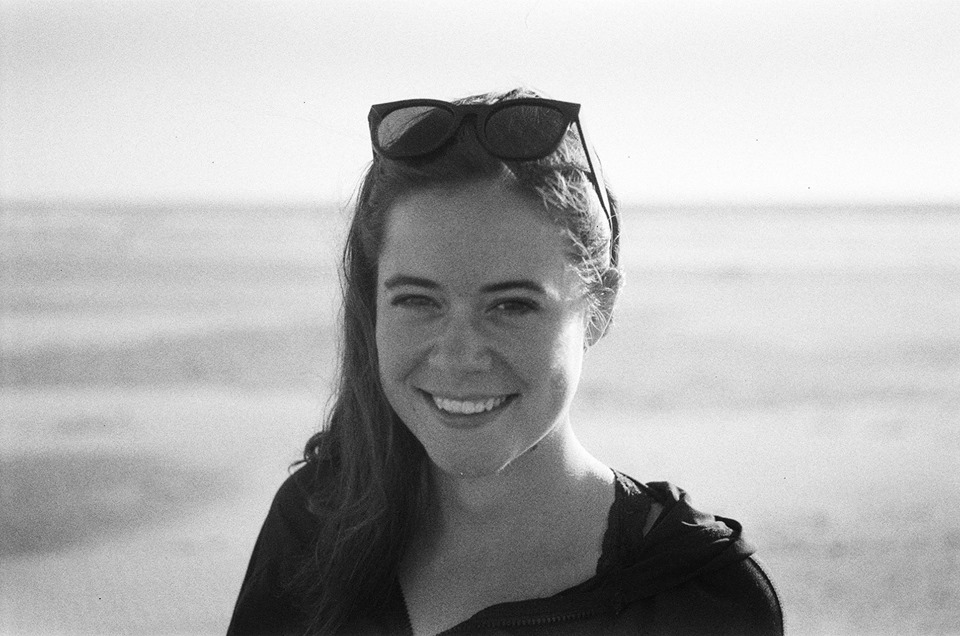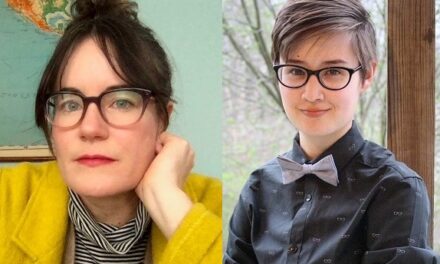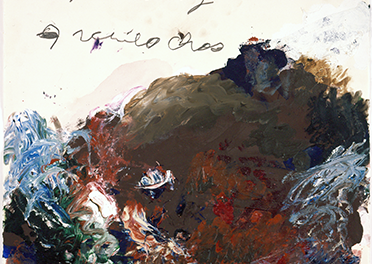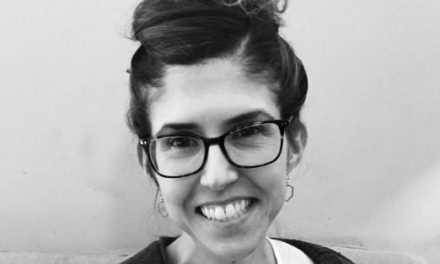
Yesterday, we featured the first part of our pas de deux between authors Joanna Pearson and Jillian Weiss, whose story and essay have eerily similar content, with both references to the devil and to kids in care of the state/foster system. We placed Pearson’s “The Films of Roman Polanski” (read an excerpt here) and Weiss’s “Invisible Man Asshole” (read an excerpt here) next to each other in the magazine itself for Issue 16.1, but we thought that the pas de deux blog series, a duet interview in which the authors ask questions of each other, was an ideal way to hear what these two writers have to say.
Today, Pearson asks Weiss about her essay:
Joanna Pearson: One of the things I love about this piece is the atmosphere—it gave me the feeling of Charleston or Savannah?—and how rich and dark and foreboding it is from the start. You do a neat trick of setting us up with the notion of ghost tours/stories, but dismissing them as, in a way, nothing but atmosphere. You seem to be interested not merely in storytelling but in questions of belief. . . . Still, at the end of the day, this essay is kind of a ghost story—at least, it’s the story of a haunting. Do you see your essay as in tension or in conversation with the ghost-story form, and if so (or if not) could you talk about this?
Jillian Weiss: I have always enjoyed ghost stories and so I was thrilled to find myself in my own ghost story. Even as it was all happening, I knew that I wanted to write about it and that I wanted the main narrative to be driven by the ghost/demon/Invisible Man Asshole. I don’t know if I would have been able to write about the job without the ghost because everything else about the job was so difficult to stomach. The ghost—though demonic—to me, was much more fun to think about than the children’s lives. Still, I ran the risk of making the story too much about the ghost and not enough about the children. As I worked on revisions, I had to remind myself not to lessen the physical world in favor of the spiritual. I did not want to neglect the voice of the children or their experiences, so I tried to construct a narrative that began sliding into a ghost story around halfway though (aided, I hoped, by the ghostly atmosphere of my city).
I’m glad you thought of Charleston and Savannah, as those are appropriate comparisons. I decided not to name the city hoping it would further protect the identities of everyone involved.
JP: The title! I’m always curious how people choose their titles, and I liked how this one wrong-footed me a little bit. The essay that followed was not what I expected to read, and yet I also couldn’t tell you exactly what it was I expected (other than the fact that my immediate association with the phrase “invisible man” is Ralph Ellison.) Of course, “Invisible Man Asshole” is the phrase that the little boy uses to refer to the spirit that supposedly lurks in the residential treatment center, but I’m curious: of all the possible titles, how did you choose this one? And when you landed on it, how did you know it was right?

JW: The title was a gift from that little boy. I was amazed by the confidence that it took to name something that the adults around me struggled to name. We did not know if it was a spirit, a ghost, a demon, or our own superstitions, and yet he had quickly named it. Since I tried to make sure the children were not neglected in the story’s narrative, I like that the title comes from one of them. I think it does feel a bit surprising and doesn’t seem to fit the tone of a significant portion of the essay, but I think it’s the same level of surprise you feel when hearing a seven-year-old say “asshole.”
For a long time the essay was tentatively called “Spiritual Warfare,” but I was never satisfied with that—it seemed a bit too uptight, and it did not sound like the title of a ghost story. At one point in the journey of revising the essay, I reread the scene with the boy and his stuffed animals and knew what I wanted the title to be.
JP: It seems to me there are lots of different threats lurking in this essay—from the supernatural to the financial to the physical. And I love that phrase you use in the beginning when you say that your work with the children ultimately forces you “into an even more tender sense of reality.” I have an intuitive sense of what this means, but I’d be curious to hear you talk about both the sense of threat(s) throughout the essay and this “more tender sense of reality.”
JW: During the months I worked at the facility, I felt like I was experiencing the whole breadth of human emotion. I experienced much of my own, but I witnessed the majority from the children and staff: doubt, rejection, depression, grief, desire, hope, skepticism, and even, sometimes, delight. The younger children, especially, did not hide their feelings. Everything was so on the surface, and so tender, that feelings quickly became actions and I was obligated to respond to the actions. This was exhausting. Everyone was stretched thin—including my bosses. The reality that I speak of in the essay is mostly regarding bearing witness to the children’s lives. I came from a very close family, had a pleasant childhood, and had had no formal social-work training, so I was unprepared for experiencing the impact of (in many cases) neglect, abuse, and homelessness.
There were so many threats that I worried if I’d be able to fit them all in. The financial threat wasn’t as important as the other threats, to me—who had a significant other with income—but it played a big part in the facility’s closure, so it needed to be addressed. The physical threat took the form of a daily wondering: would the children hurt me, themselves, or someone else? I wanted the spiritual threat (the threat of the devil) to be more mysterious—to make readers wonder if the spiritual threat was actually the cause of all the others. Is the Invisible Man Asshole responsible for every person’s sadness, or is the demon just me wanting to believe in the invisible?
Joanna Pearson is the author of the short-story collection Every Human Love (Acre Books, 2019). Her stories have recently appeared in Alaska Quarterly Review, Colorado Review, Ecotone, and Kenyon Review Online.
Jillian Weiss received her MFA from the University of North Carolina Wilmington. Her essays have been published in Missouri Review, Reed, Sycamore Review, and elsewhere. She lives in Portland, Oregon, with her husband and cat, and teaches creative writing for Duke University’s Talent Identification Program.
To read the story and essay in full, order Issue 16.1 in our online store—digital copies are only $5!











